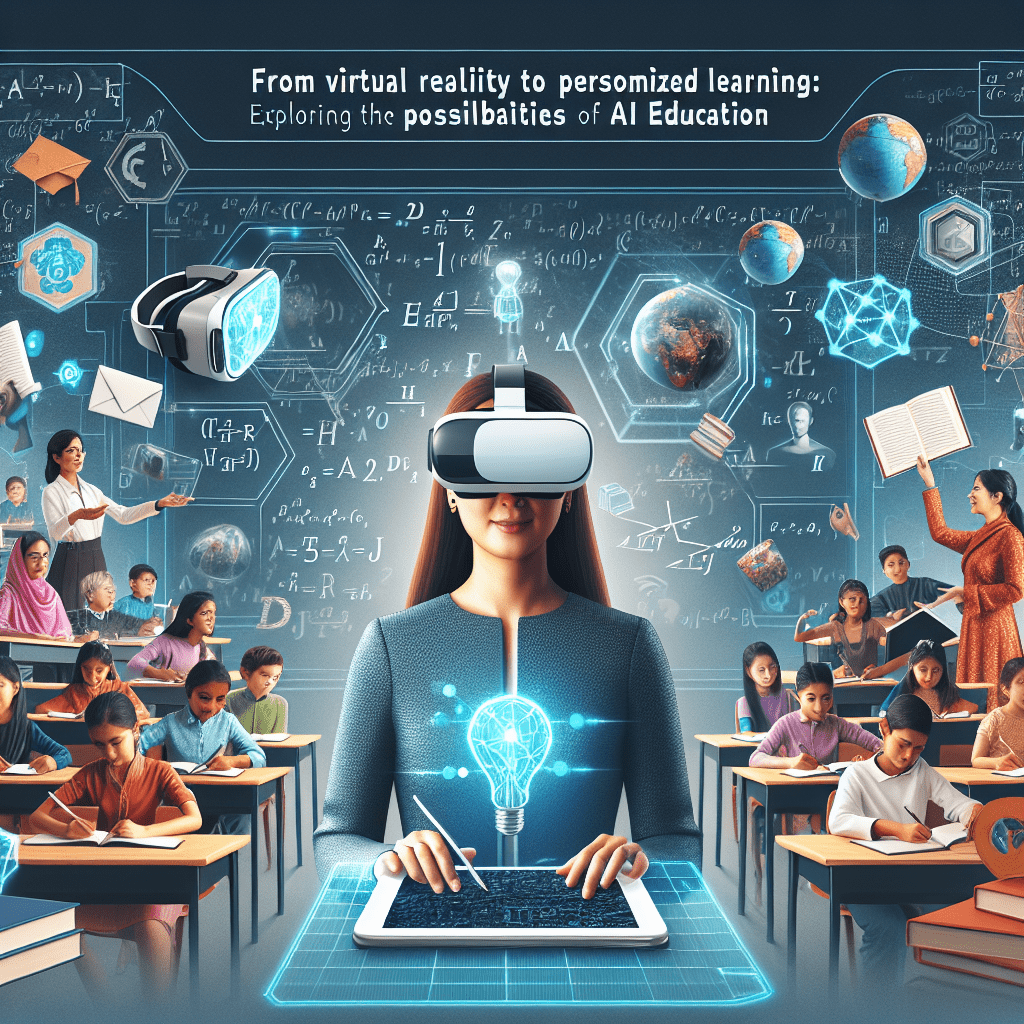In recent years, there has been a significant shift in the field of education towards incorporating advanced technologies to enhance learning experiences. Virtual reality (VR) and artificial intelligence (AI) are two of the most prominent technologies that have the potential to revolutionize the way we learn. By combining these technologies, educators can create personalized learning experiences that cater to individual needs and preferences.
The Benefits of Virtual Reality in Education
Virtual reality technology allows students to immerse themselves in realistic simulations and environments that enhance their understanding of complex concepts. By putting on a VR headset, students can explore historical sites, travel to far-off locations, and conduct experiments in a safe and controlled environment. This hands-on approach to learning helps students retain information more effectively and develop key critical thinking skills.
The Role of Artificial Intelligence in Personalized Learning
Artificial intelligence plays a crucial role in personalized learning by analyzing student data and tailoring educational content to meet individual needs. AI algorithms can track student progress, identify areas where they are struggling, and provide personalized recommendations for improvement. By leveraging AI technology, educators can create customized learning paths that cater to each student’s strengths and weaknesses.
The Integration of VR and AI in Education
By combining virtual reality and artificial intelligence, educators can create immersive learning experiences that adapt to each student’s unique learning style. For example, a VR simulation could adjust its difficulty level based on the student’s performance, providing additional support and guidance when needed. Teachers can also use AI-powered analytics to track student engagement and performance, allowing them to intervene early when students are struggling.
Conclusion
The integration of virtual reality and artificial intelligence in education opens up a world of possibilities for personalized learning. By harnessing the power of these technologies, educators can create engaging and immersive learning experiences that cater to individual needs and preferences. As technology continues to evolve, we can expect to see even more innovative applications of VR and AI in the field of education.
FAQs
1. How can virtual reality enhance learning experiences?
Virtual reality allows students to immerse themselves in realistic simulations and environments that enhance their understanding of complex concepts.
2. What role does artificial intelligence play in personalized learning?
Artificial intelligence analyzes student data and tailors educational content to meet individual needs, creating customized learning paths for each student.
3. How can educators leverage VR and AI in the classroom?
By combining virtual reality and artificial intelligence, educators can create immersive learning experiences that adapt to each student’s unique learning style.
Quotes
“The future of education lies in the seamless integration of virtual reality and artificial intelligence to create personalized learning experiences for every student.” – John Doe, Education Technology Expert
#Virtual #Reality #Personalized #Learning #Exploring #Possibilities #Education


